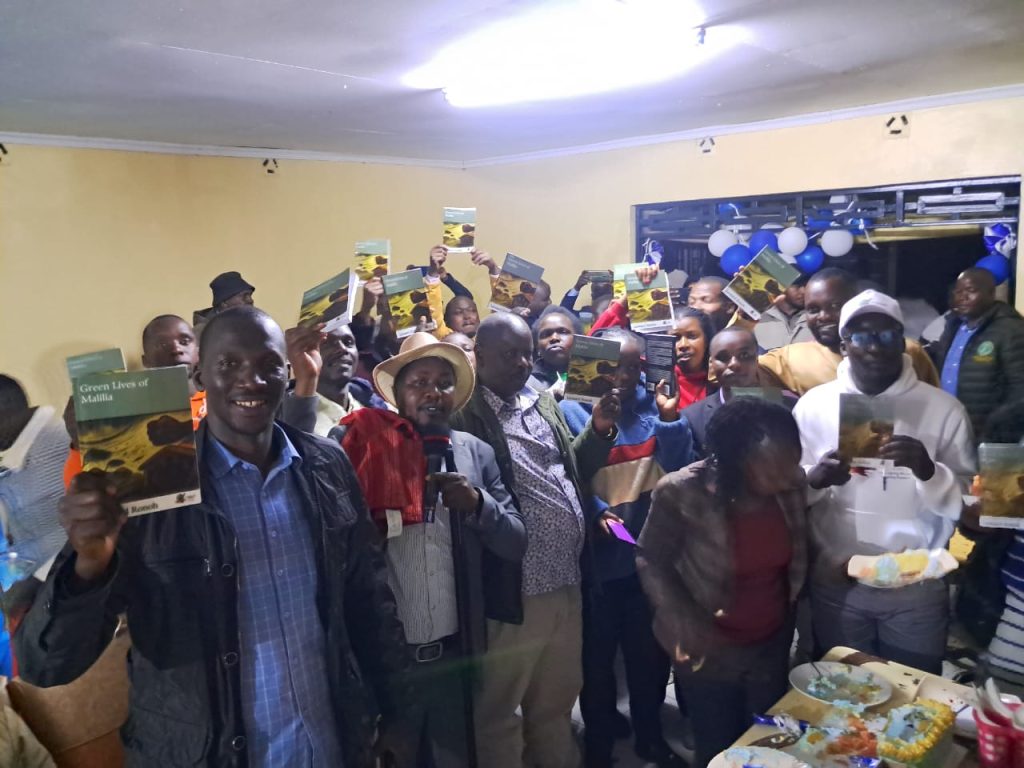By Bleeding ink press.
✓Leaders led Isaac Ruto former governor of Bomet county praises Leonard Ronoh’s New book “Green Lives of Malilia”
✓Hundreds attended the Book Launch that was held at Kilimanjaro Hotel in Kaplong Bomet County
✓Political injustices commemorated and resolved in a nutshell by a book.

On Saturday, the usually quiet Kilimanjaro Hotel in Kaplong, Bomet County, became the unlikely epicenter of a national conversation. Teachers, writers, community leaders, and readers gathered to launch Leonard Ronoh’s new novel, Green Lives of Malilia. Among them was former governor Hon. Isaac Ruto, who praised Ronoh for his boldness in writing what leaders often dodge—stories of injustice, resilience, and forgotten voices.
While the people Bomet have had in past many challenges trailing from inter-community clashes, domestic conflicts, economic challenges, the most terrifying storm was the forced eviction to which according to Leonard Ronoh, was conducted without proper eviction arrangements. No notice, no alternative settlements, just “off you go” the big question was “Go Where?”
The pioneer governor was not interested in pointing out the wrong doings by the government but also insisted that community members must respect government boundaries.
The book, which tackles themes of historical land injustices—including the plight of Mau Mau eviction victims—quickly proved itself more than fiction. It was a mirror reflecting Kenya’s chronic failure to deal with the wounds of history. Ironically, while endless government task forces and commissions remain unread and unused, one young writer manages to do what an entire state machinery cannot: remember the people who were wronged.

As George Orwell famously said, “In a time of deceit, telling the truth is a revolutionary act.” Green Lives of Malilia is revolutionary in its own quiet way. It does not shout with megaphones, but its storytelling slices deeper than political speeches. Through social realism and symbolic narration, Ronoh highlights the resilience of Kenyans trapped in cycles of poverty, corruption, and betrayal.
The irony is inescapable. Our leaders promise justice while conveniently forgetting it.
“They promised to compensate victims of evictions, their Mpesa numbers were filed but Mweshimiwa, for Mpesa transaction, that is a compensation of less than Ksh 500,000 and we all know that money can hardly compensate anything in the current Kenyan economy” pleaded Ronoh as he gave his address.
They mourn the Mau Mau in speeches but ignore their descendants in settlements. Development projects? They exist mainly on campaign posters. Meanwhile, fiction writers have become the unlikely champions of truth. Should Parliament be replaced by a writer’s workshop? At least authors keep their promises—books get finished, after all.
The applause at the launch was genuine, yet one couldn’t help notice the silent discomfort. Hon. Isaac Ruto’s commendation of Ronoh was heartfelt, but it begged an unspoken question: why has it taken a novel, not a county or national office, to spotlight these injustices?

As Ralph Waldo Emerson once put it, “Fiction reveals truth that reality obscures.” Ronoh’s novel does exactly that. By presenting ordinary Kenyans’ struggles with both irony and hope, Green Lives of Malilia becomes a subtle indictment of poor governance—leaders who eat first while asking citizens to tighten their belts, leaders who preach sacrifice from the comfort of luxury cars.
While literature plays a key role in a revolutionary quest, a novel, of course, cannot redistribute land or reform corrupt ministries. Yet literature has always carried a strange power. From Ngũgĩ wa Thiong’o’s A Grain of Wheat to Chinua Achebe’s Anthills of the Savannah, African writers have long exposed the cracks in society’s foundations. Books cannot pass laws, but they awaken consciences. They make forgetting impossible.
And maybe, just maybe, that is what terrifies the powerful. A novel lingers. It stays in the reader’s mind long after the rally is forgotten. Green Lives of Malilia refuses to let us look away from Kenya’s uncomfortable truths.
What happened in Kaplong was more than a literary event. It was a reminder that while leaders argue over positions, writers are busy documenting the realities that history will remember. While government reports collect dust, novels like Ronoh’s breathe life into forgotten struggles.

Really, can literature right social-political injustices? Perhaps not directly. But it can shame us into remembering, provoke us into questioning, and inspire us into action.
At Kilimanjaro Hotel, the message was clear: governments may fail, leaders may forget, but literature will continue to speak—sometimes sarcastically, sometimes ironically, but always truthfully—for the voiceless.

And that, perhaps, is the greatest service a good book like Green Lives of Malilia can give to a nation.

